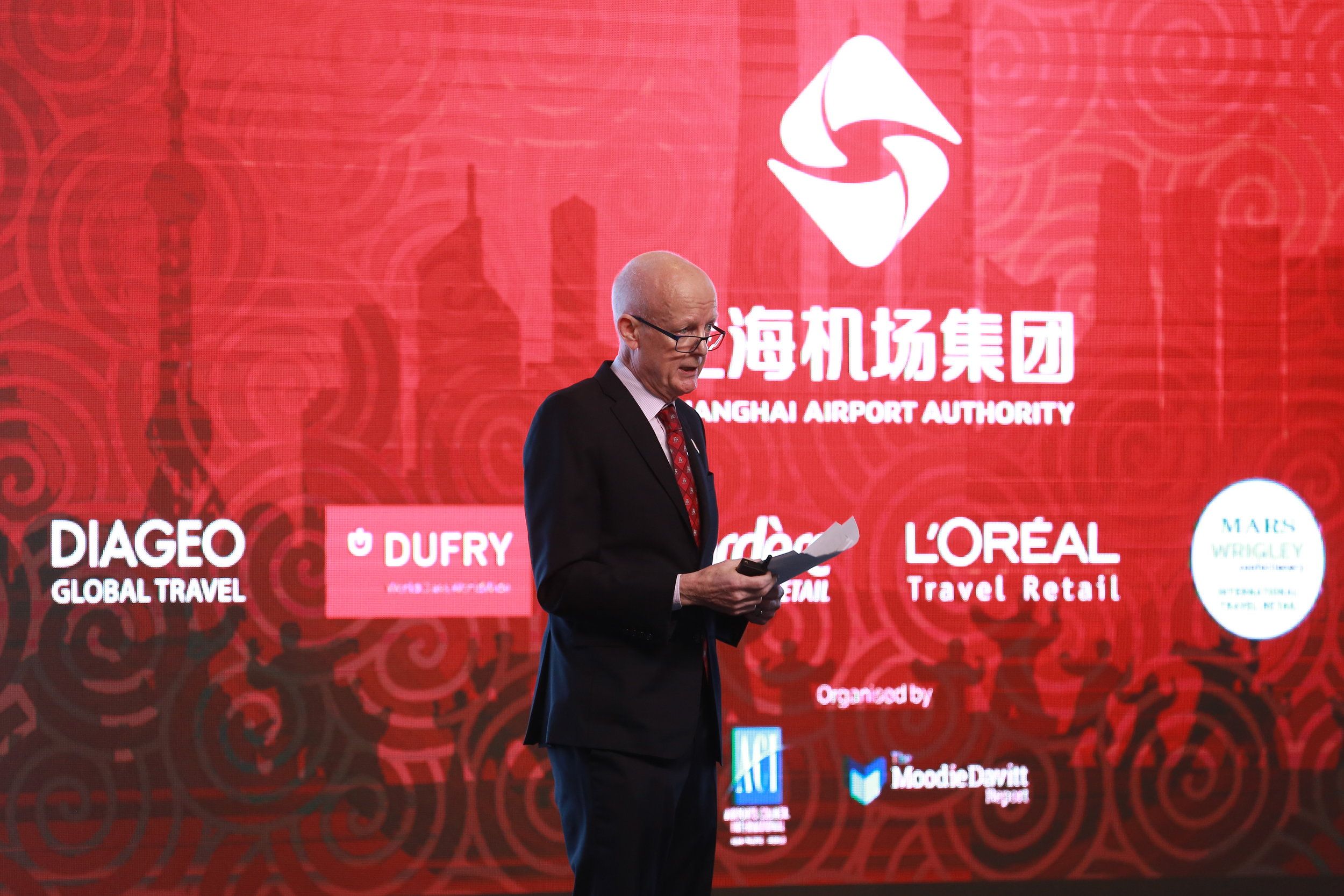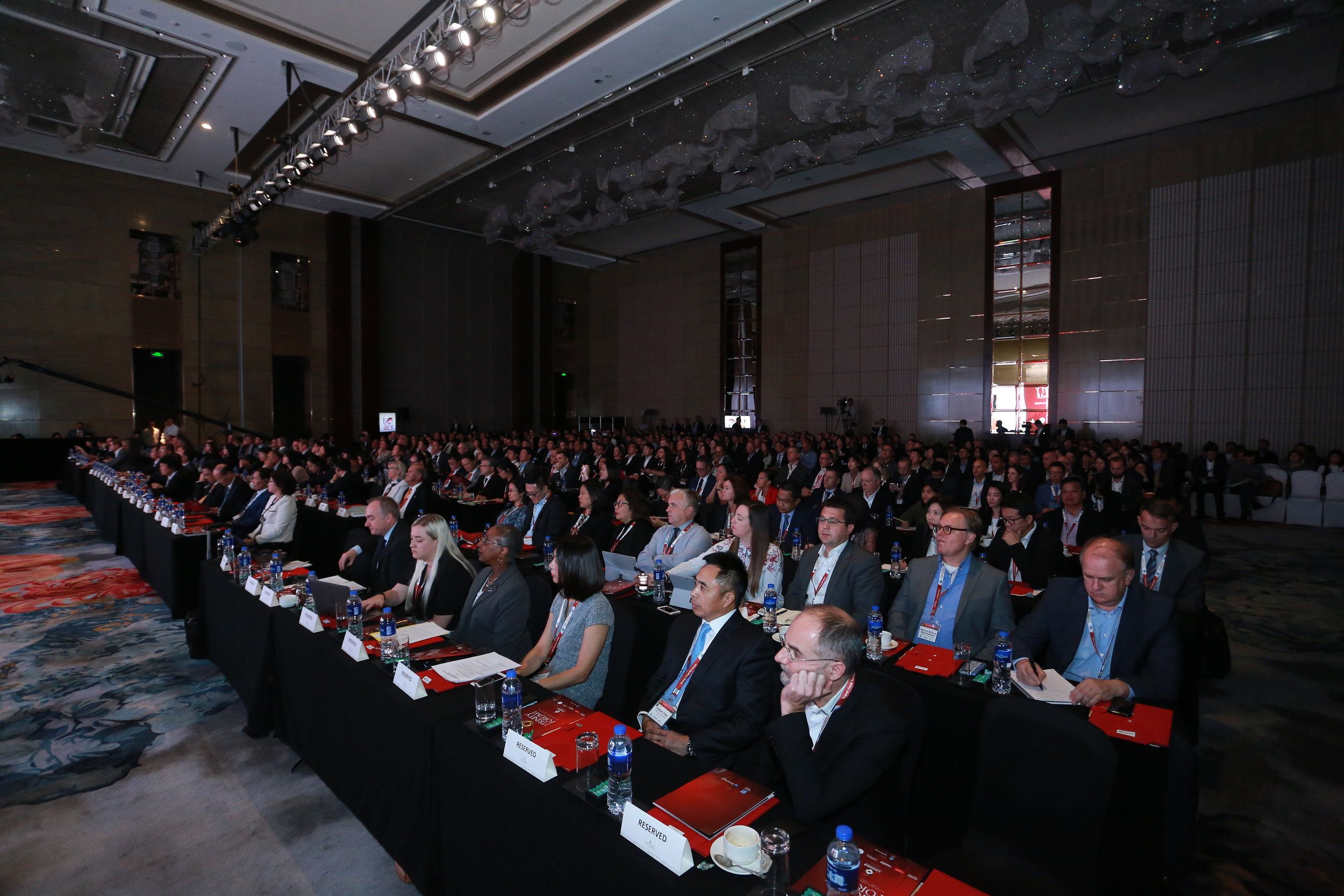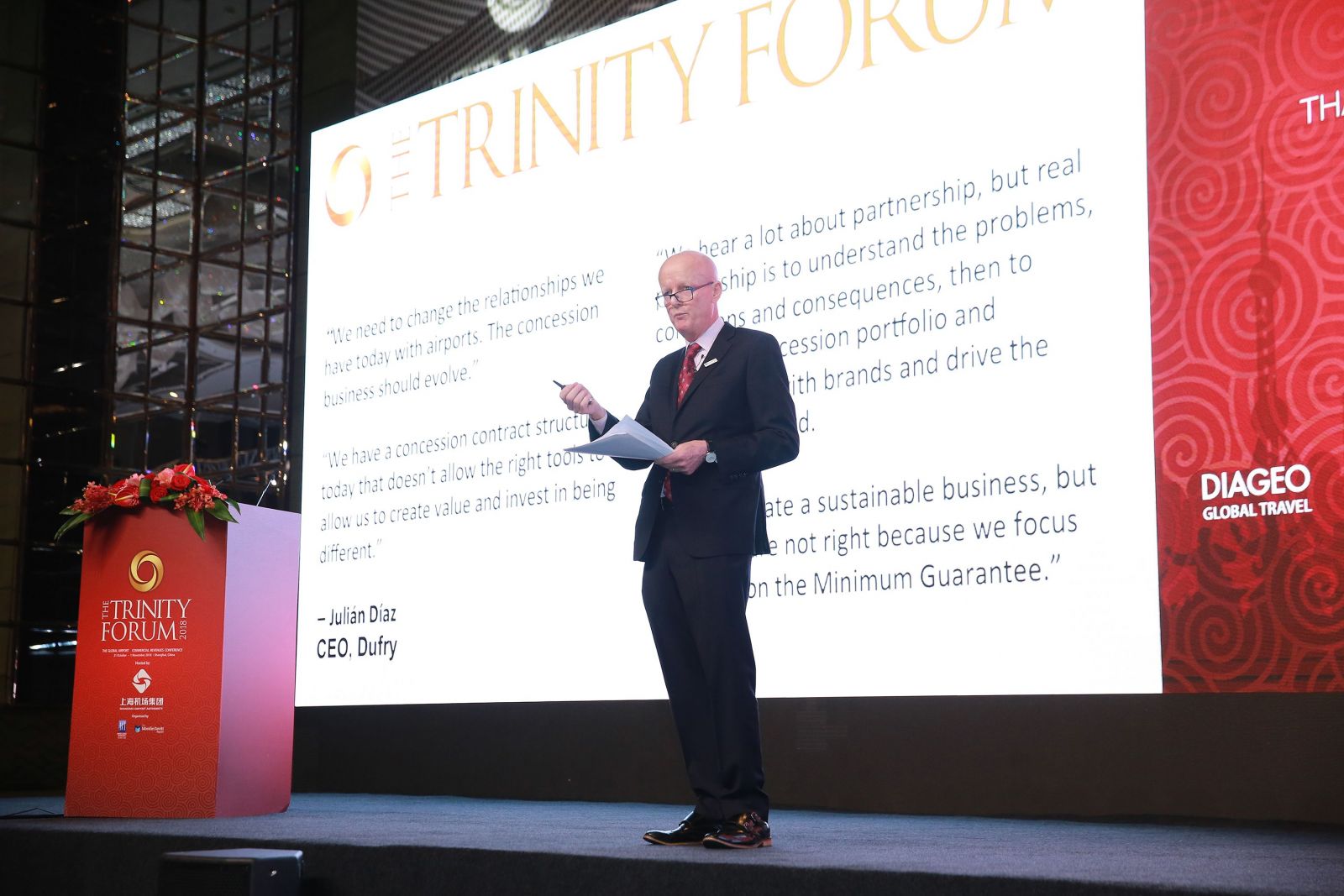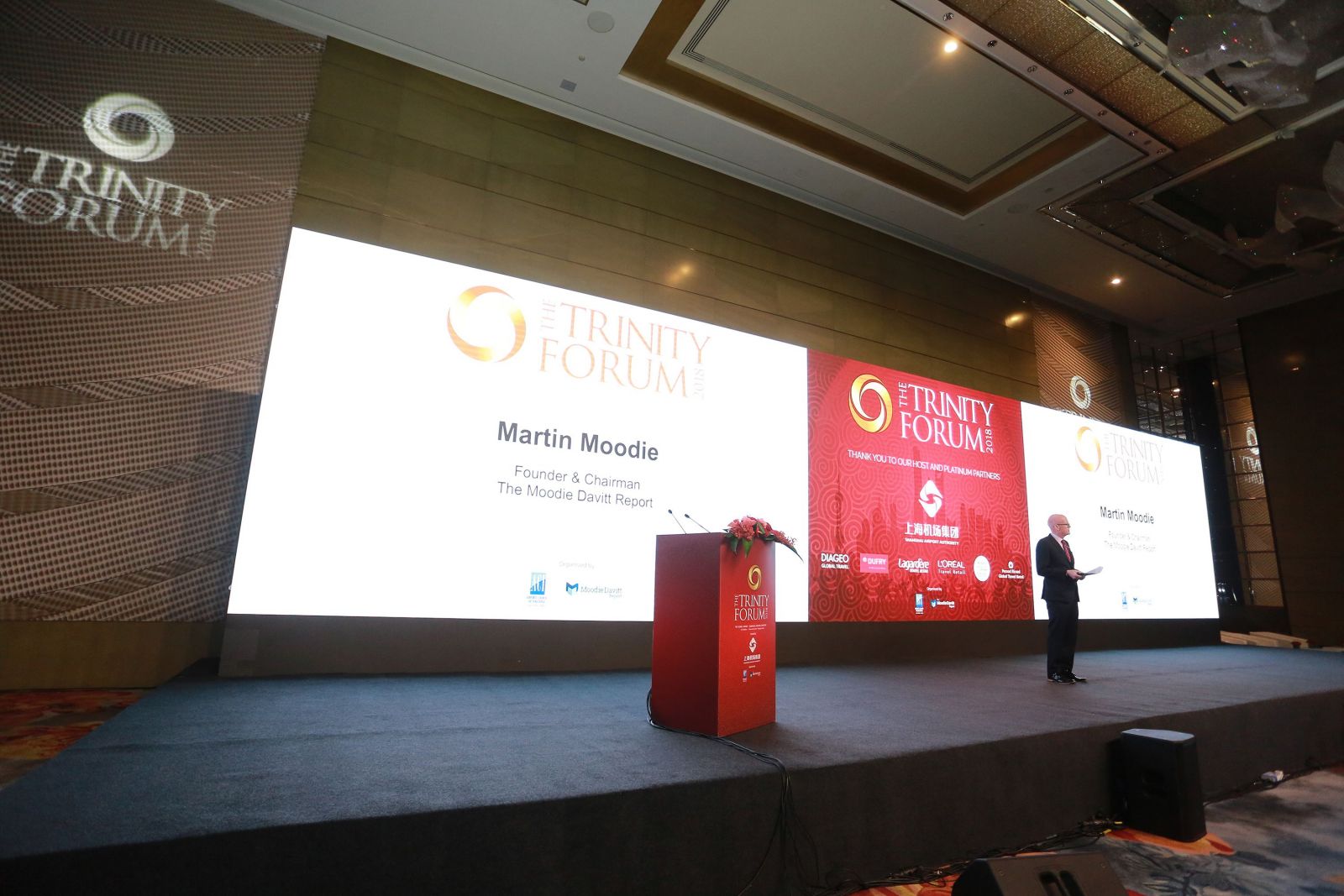Future positive
“Travel retail’s commercial ecosystem has changed beyond all recognition in recent years. This business, and the financial model that underpins it, was born long before the terms digital, e-commerce and disruption entered mainstream let alone travel retail vocabulary.”
In his welcome to The Trinity Forum in Shanghai, The Moodie Davitt Report Founder & Chairman Martin Moodie addressed one of the most influential factors affecting our industry today: the onset of digitalisation and its impact on travel retail. In the 15 years since The Trinity Forum was created, he said, the industry has undergone profound change.
Long predating the apps and e-commerce platforms that dominate today, the industry for years stood as a counterpart to the great department stores of the world, said Moodie. But the world has changed and so many of these – Sear’s, Federated, Debenham’s – have collapsed under the challenge of discounters, big box retailers and e-commerce players.
So where does our industry sit in this brave new world? Where are the greatest opportunities? The biggest threats? The major obstacles to change? The things that must change? These were the questions and big picture themes that Trinity speakers were challenged to address.
“Physical retail is not dead. Bad retail is. Trinity has always championed the excellent and damned the mediocre. We must continue to do that.”

Advertisement
The outlook, Moodie said, is a cocktail of the positive and the challenging.
Traffic forecasts suggest that air passenger volumes will double by 2040, representing a vast potential customer base. Of course, that potential needs to be tapped.
“The industry’s perennial challenge is to convert footfall into penetration, passengers into shoppers or diners. And as we’ve seen in numerous European airports in particular this year, penetration and average transaction value, at least on traditional duty free items, has been in reverse.
“That conversion challenge is arguably harder, at least for pure retail, than it ever was, because of the advent of online competition; the erosion of the historic price advantage; the greater transparency of pricing and other factors.”

Digitalisation and social media, he said, offer many benefits. We can reach passengers before, after and throughout their journey, and communicate immediately and effectively to a vast and varied audience well outside the realms of the airport or the store.
“The digital landscape allows the opportunity to educate in-store, to sell online, to pre-order, to home-deliver, to personalise, to reward, to incentivise – all things that offer the travelling consumer greater convenience, range and service.
“It can help to sell not only a much wider range of goods but a much higher value of goods.

“But digital also offers a profound competitive threat to this channel, from the giants of e-commerce to the ever-swelling wave of online boutique and niche competitors, all freed from the shackles of onerous real estate and rent costs.”
He added: “Digital and disruption and distraction (notably from Millennials) may be critical watchwords of our industry but in my conversations with senior Trinity executives all around the world there are others: exclusivity, provenance, authenticity, personalisation, localisation, experience.
“The conversion challenge is arguably harder than it ever was, because of the advent of online competition; the erosion of the historic price advantage; the greater transparency of pricing and other factors.”
“What can travel retail offer that other channels cannot? Even [Alibaba Founder] Jack Ma has not invented a way for travelling consumers to dine online, to taste online, to feel and to touch and to smell online. And by definition he cannot sell products that are exclusive to travel retail. Let’s underline and affirm our unique virtues as never before.
“We live in an age of humanisation versus digitalisation. Let’s not see it as a contest. Let’s embrace the best of both.”
The critical Chinese consumer was a recurring theme at Trinity 2018, one highlighted at the outset.

“Our industry has a huge opportunity to benefit from the Chinese traveller trend,” noted Moodie. “But do we really understand the multi-layered, multi-dimensional Chinese consumer? And what of the Chinese government’s desire to maximise domestic consumption, through offshore duty free, through arrivals duty free, through post-arrivals downtown duty free?” This, he explained, is a key issue for the business.
The challenge of understanding consumer data and our ability to put its findings into practice is another major theme. In considering this, Moodie asked whether a fourth player needed to be admitted to the Trinity: the airline.
The future of travel retail is bright, he insisted. “Physical retail is not dead. Bad retail is. Trinity has always championed the excellent and damned the mediocre. We must continue to do that. Our industry at its best is very, very good indeed.
“Mankind will continue to travel in ever greater numbers and if our industry can aspire to deliver its unique combination of great brands and great food in great amphitheatres with great experiences then the future is positive.”

The Moodie Davitt e-Zine | Issue 252 | 16 November 2018